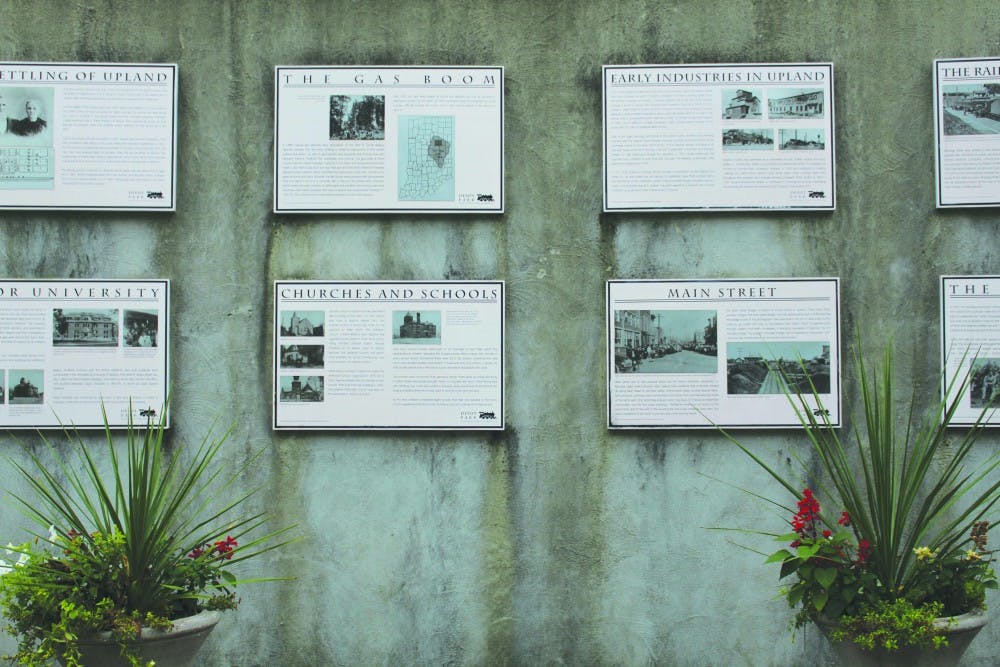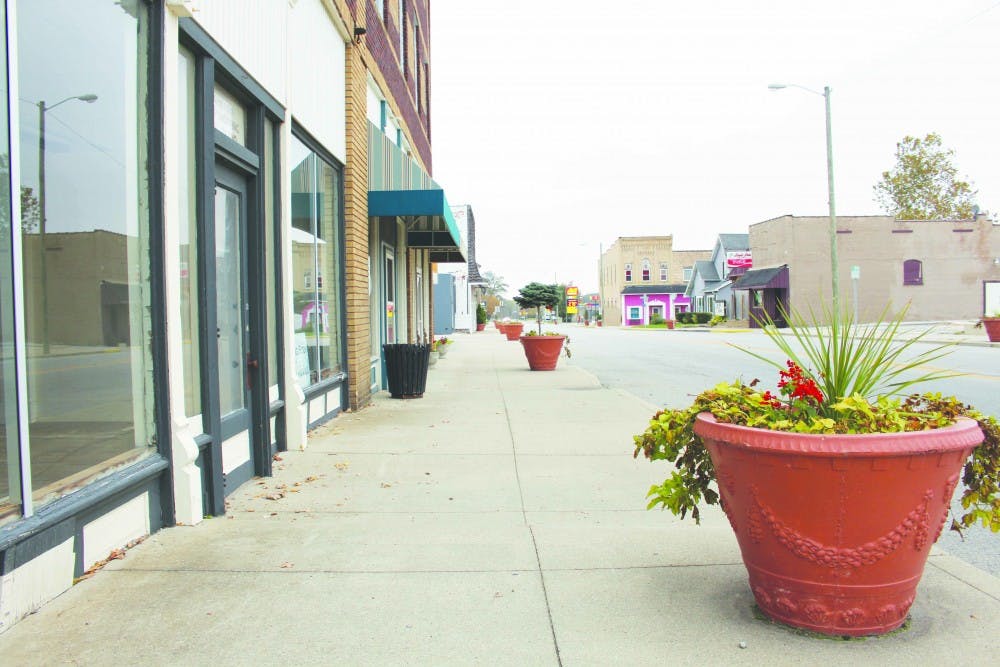By Chrysa Keenon | Echo
For many students, staying in Upland is just a pitstop on a coming-of-age journey. While some might not consider or hold value to the cornfields surrounding Taylor, there are many in the community who know it as home.
Jay Ross is one of those people. He was born, raised and currently lives in Upland and works at Ross Insurance. Though his business is located on Main Street in Upland, it is on a rare occasion that he interacts with a student from Taylor.
"I think there's more interaction between the high school kids at Eastbrook and Taylor students than there are of Taylor students and business people," Ross said.
He believes this is because parents of students at Taylor work at Eastbrook, and students from Taylor volunteer time at Eastbrook through programs such as Lift.
"As far as knowing the business people in town, I don't think (students) do. I don't know if they really want to," Ross said.
His interactions with Taylor students are often limited to Upland Chamber of Commerce sessions, which are held at the Hodson Dining Commons.
Barbara Dixon, director of the Barton Rees Pogue Memorial Library, interacts with Taylor students a few times per week. According to her, some students who come in are surprised to find themselves eligible for Upland library cards.
"To me, as long as they're living here for the school year, they're a resident of the community," Dixon said.
Though students might not be aware of the community around them, the community is very aware of them. According to Ross, Upland has a tight-knit family atmosphere, and because of this, information about students can quickly spread from ear to ear.
Pastor Rob Neel of Upland United Methodist Church believes there is tension between the Upland community and Taylor students. Neel explained from a resident's perspective, Taylor is known to bring privileged and God-fearing young people into Upland. This automatically makes community members hold students to a high moral standard. When students make mistakes or act poorly, it gets echoed in the community for long periods of time after.
In past decades, Taylor students have acted less than the standard which they were held up to, according to both Ross and Neel. They recalled past memories of times when students were hostile toward town residents, yet it is very different to how students act currently.
Ross believes this is because this generation of students is more mature than previous ones. Neel believes relational mistakes, while undesired, happen due to natural human brokenness and should be taken in stride alongside sharing and showing the gospel.
"We live in this fallen world, and we forget to give each other grace, and that goes on both sides," Neel said.
Ross believes both sides of the community should act to improve relations. Comparing the relationship to a bridge, he said it is still in the process of being built, but must be done so in order for the town and university to both benefit.

Dixon, though not a resident of Upland, spends her days directing the library as a labor of love. She urged students to understand how important relationships are in town. For Dixon, the people she works with are the best part of the job.
"There are wonderful people in this community, and your lives will be enriched by investing in relationships with them," Neel said.
Dixon remarked she would like to see more Taylor students volunteer to spend time helping shelve or organize books in the library.
Neel recalled ways he saw students volunteer for the community in the past, and used the analogy of the differences between a bib and an apron. A bib is typically used when asking to be served, while an apron used when asking to serve. In order for the community to thrive, bibs and aprons should be used interchangeably, as students and members of the town should strive to serve each other.
"We're really pretty good hearted people," Ross said. "We're pretty good down home people."





